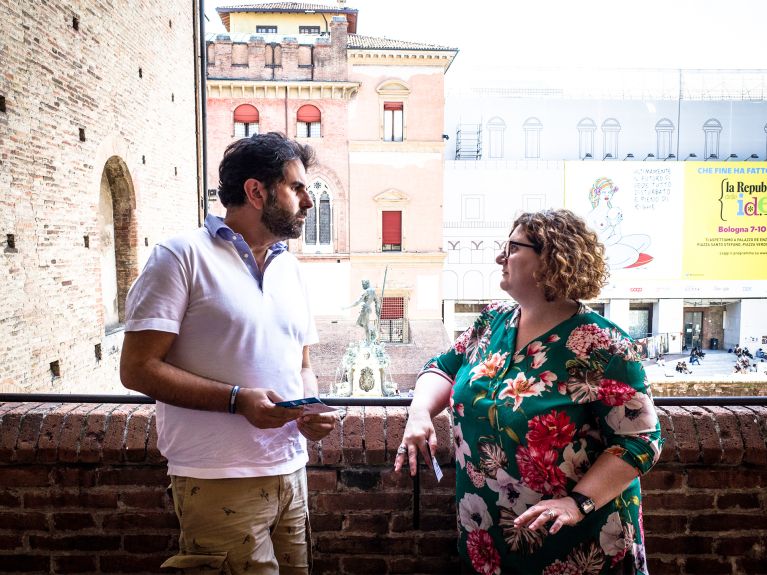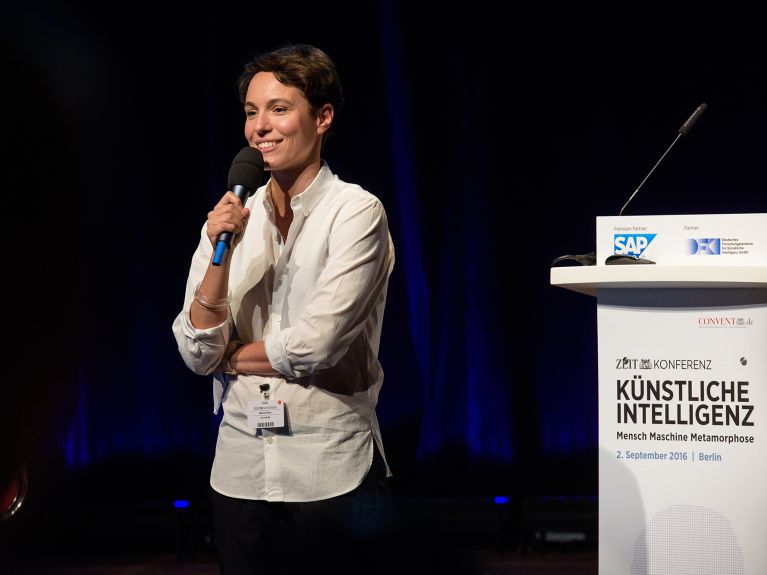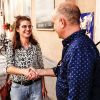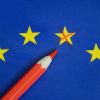Dialogue between opposites
Europe Talks pairs off thousands of Europeans for face-to-face political discussions. What benefits do its organisers expect this to bring ahead of the European elections?

Do we Europeans really know one another? Do we know what concerns people in neighbouring countries and why they think what they think? Not really, believes Maria Exner, Deputy Editor-in-Chief of Zeit Online and organiser of the Europe-wide project Europe Talks. Shortly before the European elections, the project is bringing together thousands of Europeans for a dialogue of opposites.
Zeit Online, the website of the German weekly newspaper Die Zeit, is working with 15 European media companies for the project. Over six weeks, the media partners asked their readers to answer the same seven controversial questions concerning Europe. Over 17,000 people signed up and shared their opinions with digital questionnaires. An algorithm then put participants together in “pairs”, who are meant to talk to one another at 3 pm on 11 May – either via video call or during a face-to-face meeting.

Ms Exner, we all more or less live in our own filter bubble – where does crossborder dialogue still actually take place in Europe?
Until now, we Europeans have often only debated current, even controversial issue in our own countries. Thus, Germans only discuss Greece from a German perspective and vice versa. The Europe Talks project is an experiment that raises the question: “Can we in Europe find ways of engaging in crossborder discussion on issues that affect the whole of Europe? And also develop greater understanding for one another?”
Can we find ways of engaging in crossborder discussion on issues in Europe?
Do we avoid debate with the “other side” too often in Europe?
I would tend to say it’s simply not easy at all to meet the “other side” in our everyday lives. At work, with friends or when travelling we often only meet people who have similar views to our own. Conducting a political discussion with another European who thinks completely differently on fundamental issues is a rare, but valuable experience. That’s why we want to enable encounters of this kind for a large number of people with Europe Talks.
What do you hope the Europe Talks discussions will bring?
We are not setting the participants any homework for the discussions – they decide for themselves what they talk about. However, from our national dialogue events – for example, Deutschland spricht – we know that many people first “work through” the topics on the questionnaire that they registered with.
After that, however, they talk about personal things, about their own lives. And this often leads to understanding for why the dialogue partner thinks this or that way. It is interesting for participants to hear about the experiences of the other and to discover which developments worry them.
How important are face-to-face discussions in times of anonymous Internet comments and the brutalisation of discourse?
Personal encounters – face-to-face and without observers – create a space in which no one needs to deploy rhetorical big guns – here each can develop curiosity and show genuine interest. Many participants told us after their discussions that they weren’t at all as opposed to one another as the highly charged debates on the Internet perhaps suggest.
Europe Talks Conference
At 3 pm on 11 May the roughly 4,000 pairs will talk to one another across Europe – either via video call or during a face-to-face meeting. This day will also see the Europe Talks Conference staged in Brussels, featuring music, panel discussions and conversations between European neighbours. Among those taking part will be 200 of the tandems, Federal Foreign Office Minister of State Michelle Müntefering, ESA astronaut Samantha Cristoforetti.
Europe Talks is being supported by the Federal Foreign Office in cooperation with the European Cultural Foundation, the Allianz Cultural Foundation and Stiftung Mercator, the Evens Foundation, and in partnership with Interrail and the Bozar Centre for Fine Arts Brussels.
More information about the conference can be found here: http://www.zeit.de/europetalks-opening
You would like to receive regular information about Germany? Subscribe here:

